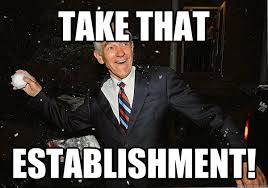When Tommy Tuberville ran for Senate in Alabama, many voters saw him as a political outsider — a straight-talking former football coach who would shake up Washington and challenge the career politicians running the country into the ground. His campaign was built on populist energy, promising to fight the “swamp” and stand up for ordinary Americans against the elites who had long sold them out. But like so many before him, Tuberville’s time in Washington has revealed how quickly even outsiders can become absorbed by the establishment they once condemned.
Elected in 2020, Tuberville rode the wave of conservative populism that carried Donald Trump to power. His message resonated with frustrated voters who felt abandoned by both parties — people tired of corporate lobbyists, endless wars, and a government that always seemed to work for someone else. Yet, once he arrived in the Senate, the game changed. The fiery coach who promised to take on the system found himself surrounded by it — and, at times, playing by its rules.
Tuberville’s controversial hold on military promotions in 2023 was presented as a stand for principle, protesting Pentagon policies he viewed as political. But it also showed how individual acts of rebellion in Washington can easily become political theater — symbolic gestures that spark headlines but do little to change the deeper structure of power. While his critics called him reckless, his supporters saw him as one of the few willing to push back. Yet, beneath the noise, the machinery of government rolled on, untouched.
That’s the deeper tragedy of modern American politics: even when an outsider gets elected, they’re dropped into a system designed to neutralize dissent. The Senate runs on hierarchy, lobbyist money, and backroom deals — not fiery speeches or campaign slogans. Tuberville, like others before him, has faced the impossible task of fighting a bureaucracy that bends but never breaks.
His story reflects the broader frustration of the American people — the sense that no matter who they elect, the establishment always wins. The faces change, the rhetoric shifts, but the agenda remains: protect power, preserve privilege, and keep the public divided enough not to notice.
For all his flaws and controversies, Tuberville symbolizes something real: the longing for authenticity in a political world that feels staged. Whether he’s seen as a hero or a headline-hunter, his rise and struggles in Washington remind us that the “outsider” myth is hard to sustain once you step inside the gates of power.
Until America reforms the system itself — not just the players — every outsider will eventually face the same choice: adapt to the establishment, or be crushed by it.
